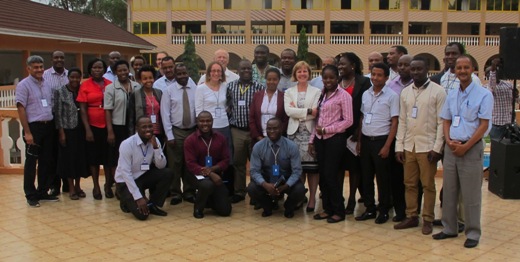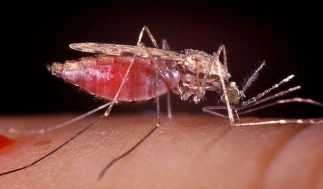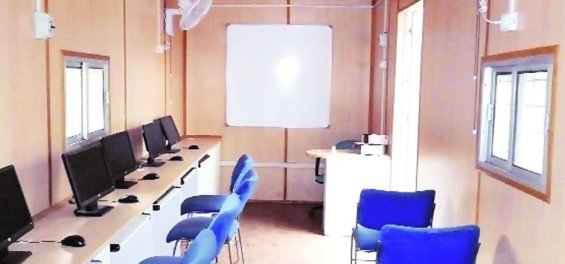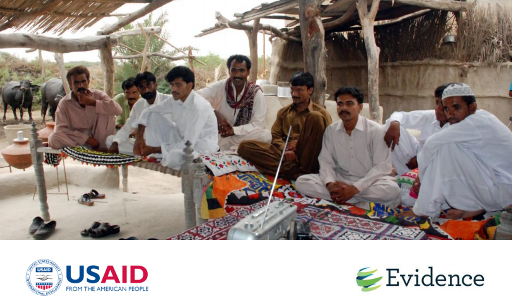| Dear Centre Leaders,
Greetings from the INDEPTH Secretariat. We hope you have had a good week.
We have the following items for your attention:
1. Group finalise plan for newborn health work
 Particiapnts at the workshop.
Particiapnts at the workshop.
With new momentum behind improving metrics for newborn health following from the Every Newborn Action Plan, the INDEPTH Maternal and Newborn Working Group has held a meeting from 18-19 June 2015, in Kampala, Uganda, to finalise the group’s strategic plan, harmonise existing efforts, and identify opportunities for further collaboration. The meeting which was funded by Save the Children and Children Investment Fund Foundation (CIFF) had 37 participants from 15 HDSS in seven countries.
Maternal and newborn healths are closely related and should be linked in all health systems, particularly for care at and around the time of birth. However, lack of information systems on the number and causes of deaths in many low-and middle-income countries (LMICs) makes tracking of mortality and coverage of interventions a challenge.
In line with the Every Newborn Action Plan Measurement Agenda, the INDEPTH Maternal and Newborn Working Group through Health and Demographic Surveillance Sites are working to help bridge this information gap.
2. Shipping containers turn hi-tech clinics for rural health delivery
A micro health centre (MHC) setup in shipping containers with all modern facilities has been inaugurated in Pabal, near Vadu in Pune, India. The Vadu HDSS, an INDEPTH Network member centre plays role in running the MHC. Modifying shipping containers into mobile clinics, equipped with lab investigation and telecommunications facilities, is the latest effort in disaster management. The aim is to set up more than 100 micro health centres across India.
Read more about this innovative approach to health services here:
http://indianexpress.com/article/cities/pune/shipping-containers-turn-hi-tech-clinics-for-rural-health-delivery/
3. New anti-malaria drug developed at Dundee University
 Researchers at Dundee University in Scotland have discovered a new compound which could treat malaria while protecting people from the disease and preventing its spread, all in a single dose. The compound, DDD107498, was developed by the university's Drug Discovery Unit and the Medicines for Malaria Venture. The new drug could work well against parasites resistant to current treatments. Details of the discovery have been published in the journal Nature. You can also read: http://www.bbc.com/news/uk-scotland-tayside-central-33164528. Researchers at Dundee University in Scotland have discovered a new compound which could treat malaria while protecting people from the disease and preventing its spread, all in a single dose. The compound, DDD107498, was developed by the university's Drug Discovery Unit and the Medicines for Malaria Venture. The new drug could work well against parasites resistant to current treatments. Details of the discovery have been published in the journal Nature. You can also read: http://www.bbc.com/news/uk-scotland-tayside-central-33164528.
4. New Publication from Evidence Project
“Engaging the Missing Link: Evidence from FALAH for Involving Men in Family Planning in Pakistan” is the new publication from the Evidence Project.
http://evidenceproject.popcouncil.org/wp-content/uploads/2015/06/FALAH-Case-Study.pdf
This case study was discussed at a National Consultation on “Male Involvement in Family Planning in Pakistan” on June 16, 2015. It was organised by the Evidence Project/Population Council. The audience included provincial parliamentarians, senior government officials from federal and provincial population and health departments, donor representatives, NGOs and partner organisations. The goal was to generate a set of recommendations that can be adopted at the national and provincial levels for fully utilising the potential role of men in reducing unmet need for family planning and accelerating fertility decline.
5. Call for abstracts – Humanitarian Congress
The organisers of the upcoming XVII. Humanitarian Congress (www.humanitarian-congress-berlin.org), 9 -10 October 2015 in Berlin, Germany, are pleased to invite abstracts for submissions for oral or poster presentations. The abstracts should relate to the topic: “Science where it’s really needed: Translating Innovative Research into Humanitarian Medicine and Global Health Practice”.
The abstracts should be submitted by no later than 15th July, 2015. For queries or assistance contact:
scientific-session@humanitarian-congress-berlin.org
6. New, free Maternal Infections online training course
The Nuffield Department of Obstetrics & Gynaecology at the University of Oxford, Harvard Maternal Health Taskforce, The Global Health Network and the Geneva Foundation for Medical Education and Research have developed a free, online, open access Maternal Infections training course.
Infections during pregnancy, post-partum haemorrhage, hypertensive disorders, and abortion related complications are the main preventable causes of maternal and neonatal morbidity and mortality. Maternal Infections is a substantial five module course addressing the global burdens of maternal infections, the effects they have on mother and foetus and the diagnosis and treatment of each based on current evidence.
The course provides an insight into individual studies on specific infectious diseases during pregnancy and outlines areas that have insufficient evidence suggesting a need for further research. Each of the five modules takes between one to two hours to complete with a certificate issued upon successful completion of the final quiz. Click here to get started: https://globalhealthtrainingcentre.tghn.org/maternal-health-infections/
7. Data Scientist positions in the MRC/Wits
Please find attached an advertisement for Data Scientist positions in the MRC/Wits Rural Public Health and Health Transitions Research Unit. These positions will provide a rich and stimulating working experience in a collegial environment that focuses on personal and professional growth. The closing date is 6 July 2015. |




